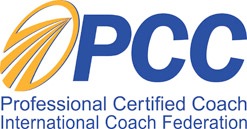Leadership
Use Frustration to Challenge Yourself as a Leader
Experiencing frustration is common to all of us. Frustration is an emotion. It is also internal feedback that alerts us to the opportunity for change. I hear about the frustration my clients experience in their workplace on a regular basis – my direct reports are not doing what they need to, my organization isn’t changing to support my idea, my boss is not providing the kind of leadership we need, and the list goes on. I’m sure you can add to it. Frustration is an emotion. Human beings experience this emotion. In fact, it is unavoidable, so let’s let it be OK and then move on to use it. Frustration is internal feedback from you to you. It is you alerting you to the opportunity to think about the current situation in a new way that is more congruent with your AdultLeader. If you allow yourself to think about the situation in a new way, then you open the possibility for new ideas about how to handle it in a new way. What new behavior or action can you use to potentially accomplish a different result; one that might ease your frustration, one that might allow you to know that you have given your best effort, one that might actually move you closer to the result you want? Frustration can be welcomed as an opportunity to Close The Leadership Gap. This is the gap between where you are experiencing frustration because of your beliefs, perceptions, habits, expectations, and assumptions (what you think is right and true) AND your leadership potential (which is limitless and full of possibilities). When you are willing to leverage your unique strengths, skills, and experiences with self-knowledge, purpose and commitment, it becomes possible to take a shot at a different approach to the current frustrating situation. It feels good to be the AdultLeader when you choose to act instead of being a victim to the situation. The positive emotion you experience is also internal feedback from you to you. You experience it when you chose to Close the Leadership Gap by acting on your leadership potential. What is a current frustrating situation you want to have an impact on? Frustrating situations will continue to show up for you. You get to choose if you are willing to welcome the challenge. You can be the victim or you can act. It can seem easier to make it necessary for the others or the situation to change. It’s not. It is just frustrating. When you look at it this way, you don’t really have a choice. Please feel free to send your comments and...
Read MoreA Goal Is a Catalyst for Becoming More Than You Are Today
We all want or need to achieve goals and results. Results are important for our organizations, our teams, and us. We could argue that our jobs, finances, opportunities, and satisfaction are all dependent on our effectiveness at getting results and accomplishing goals. Maybe what matters more than the result itself is who we, our teams, and our organizations need to become in order to achieve this result. What new skills and knowledge do we need? What relationships do we need to manage more effectively? What risks do we need to be willing to take? What do we need to do differently than we have ever done before in order to achieve this result or goal? Our focus on getting a result or accomplishing a goal is the catalyst for change, for becoming more of who we are capable of becoming as an individual, a team, and/or an organization. The more conscious we are about defining what the change needs to be or recognize what change occurred, the more leverage we have for sustainable change, growth, and success. 1. At the start of the process, we can define who we need to become along with defining the result or goal. This creates deeper meaning, defines our aspiration, and sets us on the path to the result or goal with more purpose and energy. 2. After we have accomplished the result or goal, we can debrief who we have become. This is an opportunity for acknowledgement and appreciation. We can also codify what has changed and define best practices for the future. 3. If we didn’t accomplish the result or goal, we can debrief what happened. What worked? What didn’t work? What do we need to do differently or focus on next time so we increase our likelihood of success? By observing and acknowledging the change and growth that has occurred, we can transform how we think about ourselves as individuals, teams and/or organizations. We can then take on new and bigger challenges with a firmer foundation and more confidence in our ability to successfully reach our goals and celebrate who we are becoming along the way. My best to you. Please feel free to send your comments and...
Read MoreAn Understanding of Implicit Memory Has Real Implications for Self-Awareness in Leaders
Implicit memory is a type of memory in which previous experiences aid in the performance of a task without conscious awareness of these previous experiences. Schacter, D. L. (1987). Journal of Experimental Psychology: Learning, Memory, and Cognition, 13, 501-518. . We have all reacted unreasonably or unproductively and seen others do the same. An understanding of implicit memory has real implications for self-awareness in leaders. This understanding can help us manage our own behavior and help us avoid being sucked into reacting to someone else’s unreasonable behavior. “What’s crucial to understand about implicit memory — especially when it comes to our kids and their fears and frustrations–is that implicit memories cause us to form expectations about the way the world works, based on our previous experiences. Because neurons that fire together wire together, we create mental models based on what’s gone on in the past. This is because implicit memory creates something called “priming” in which the brain readies itself to respond in a certain way.” From Dr. Dan Siegel and Tina Payne Bryson, Ph.D., The Whole-Brain Child Our brain is designed to react based on previous and repeated experiences. We form mental models for making sense of the world based on implicit memory. We recognize these mental models as our beliefs, perceptions, habits, expectations, and assumptions. Implicit memory helps us run on automatic pilot and to react without thought. Sometimes this is great, like in an emergency, or when we are running late for work. Sometimes it is not so great, like when we find ourselves reacting unreasonably or unproductively (again). To develop as leaders, we need to increase our conscious awareness of the existence of the mental models we created from implicit memory so we can evaluate their effectiveness. Or just to realize they exist and are likely not helpful in the present moment. Rather than react, we want to be better able to consciously choose to respond in order to get the results we want and be the leader and/or parent we want to be. This is about training our minds through our awareness to intervene and interrupt the reactions led by our brains. In my executive coaching, I use the Results Accelerator™ to help my clients expand awareness of their mental models, or systems (beliefs, perceptions, habits, expectations, and assumption), so they can more consciously and effectively choose how they will respond and lead. Leadership is not a position. It is the expression of our best and most capable selves. Leadership is a choice. My best to you. Please feel free to send your comments and...
Read More







